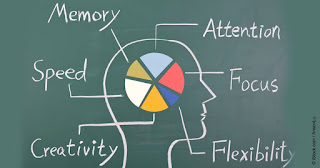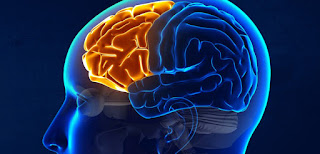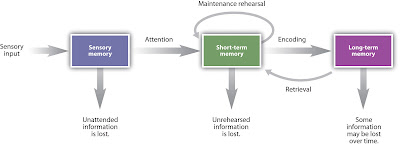Like other parts of our body, our brain is made up of cells. Many of these cells help regulate the chemistry of the brain and give it structure. But some are specialized to do far more. These cells, known as neurons, do most of the work that allows you to think, feel, and move.
A human brain may contain as many as 100 billion neurons of different kinds. The neurons connect through long, spidery arms and communicate with each other through electrochemical signals. Each of the brain's 100 billion neurons can connect to at least 1,000 other neurons, so a brain may have at least 100 trillion connections in all. Every second, a single neuron may send as many as 1,000 signals.
These signals can zip from neuron to neuron at speeds up to 250 miles (400 kilometers) an hour.
Brain Size:
How big is the human brain compared to other brains?
Human brain: An adult human brain weighs around 3 pounds (1400 grams), or about as much as a cantaloupe.
- Left hemisphere : Indicates that a person is more skilled in mathematical, facts, summary, communication, programming, analysis, practices and see in detail.
- Right hemisphere : Indicates that a person who is artistic, creative, likes visual, have strong instinct, can give idea, holistic and see image completely.

- Memory is an individual ability to store, keep and remember information for a long term
- like computer software
Brain

- Brain is an organ from human body for them to think
- like a computer hardware
Sensory Memory

- is temporary
- related to provisional information storage that carried by 5 senses
- if it is given attention, it would transferred to short - term memory or it would be loss instantly
Short-term Memory
- is a process that allows information to be received and stored in a duration 30 seconds to 24 hours.
- have a limit on how much information can be stored. Some of it, if given concentration repeatly, will be move to long-term memory system.
Long-term Memory
- is a memory of an information for an extensive time.
- every information stored will permanent until the end of a person life, but it depends how they can recall it from the memory (brain).
Memory Strategy
1) Make schedule to read the book for some period - Not read it a day before the exam day. For example you read 1 chapters a day to understand and make some notes.
2) Rehearsel - Read something repeatly. Repeated the information to keep it in your memory.
3) Elaboration Strategies - this strategy use different words or methods that you easily to remember such as use symbol, colour, and same word but in short form.
Concentration Strategies
- causes of poor concentration
2. Lack of attention.
3. Lack of motivation.
4. Distraction from others.
5. Uncomfortable environment.
6. Psychological matters - personal problems, worries, anxieties, illness and tiredness.
Concentration Chart

Strategies For Improving Concentration
- Create a positive learning environment
- Use motivational & organizational strategies
- Deal with internal distractions
- Use active learning startegies.
- Monitor our concentration.
- Match your learning style.
Reference
-https://www.newscientist.com/article




No comments:
Post a Comment